LaSalle Speech Therapy for Children and Families | Supporting Bilingual Communication


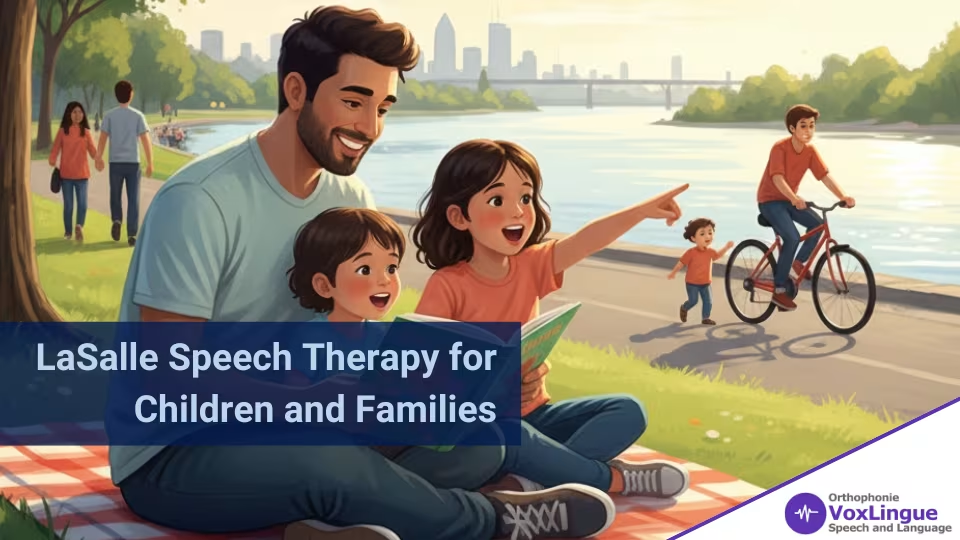
LaSalle is a unique part of Montreal where languages, cultures, and generations come together in everyday life. Families gather along the river, children play in the parks, and neighbors greet one another in both French and English. It is a place where communication is not only about words but about connection, understanding, and belonging.
In a community as diverse and family-oriented as LaSalle, language serves as the thread that links people together. The ability to communicate effectively allows children to express curiosity, build friendships, and share their ideas in school. For adults, communication helps form meaningful relationships, engage in work and community activities, and participate fully in the life of the neighborhood.
When children develop strong speech and language skills early, they are better prepared to succeed in school and in social settings. These abilities influence not only how they learn to read and write but also how they collaborate with teachers and classmates. Similarly, adults who refine their communication skills often experience increased confidence in both personal and professional situations.
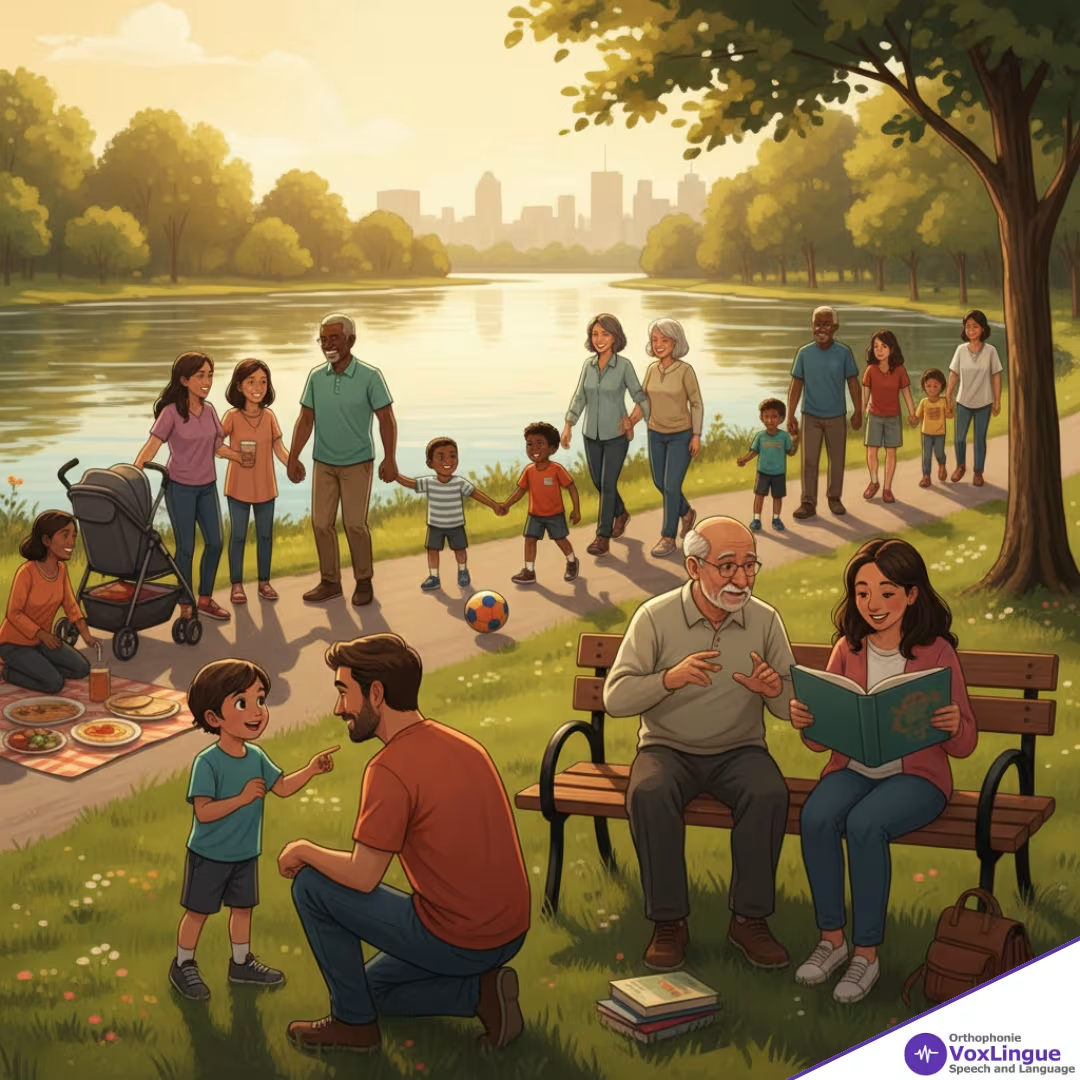
Speech and language development are central to how we grow as individuals and as a community. In LaSalle, where families speak multiple languages and value cultural diversity, supporting communication means nurturing every person’s voice. It is through these voices that the community continues to thrive, learn, and share its stories with one another.
LaSalle is one of Montreal’s most welcoming and family-centered boroughs, known for its beautiful riverfront views, accessible parks, and strong sense of community. Located along the St. Lawrence River, LaSalle offers a natural environment that encourages exploration and conversation. Families often gather at Parc des Rapides, a peaceful area that provides opportunities for children to describe what they see, ask questions about nature, and expand their vocabulary through shared experiences. The sounds of the river, the sight of passing birds, and the changing seasons all become opportunities for children to listen, observe, and express themselves.
LaSalle’s diversity is one of its greatest strengths. Many residents speak more than one language, and it is common to hear French and English used side by side in parks, schools, and local businesses. This multilingual atmosphere offers children natural exposure to language variety and helps them develop an understanding of how words and expressions can shift between contexts. Families who speak several languages at home are not only preserving cultural heritage but also giving their children valuable cognitive advantages, including increased flexibility and problem-solving skills.
The community’s infrastructure also supports language and learning. Local community centres, libraries, and recreation programs provide structured and informal opportunities for communication. Group activities such as story time, art classes, and sports allow children to practice social interaction and develop listening and conversational abilities. Schools in LaSalle play an essential role as well, encouraging collaboration among teachers, parents, and specialists to promote speech and language growth from early education onward.
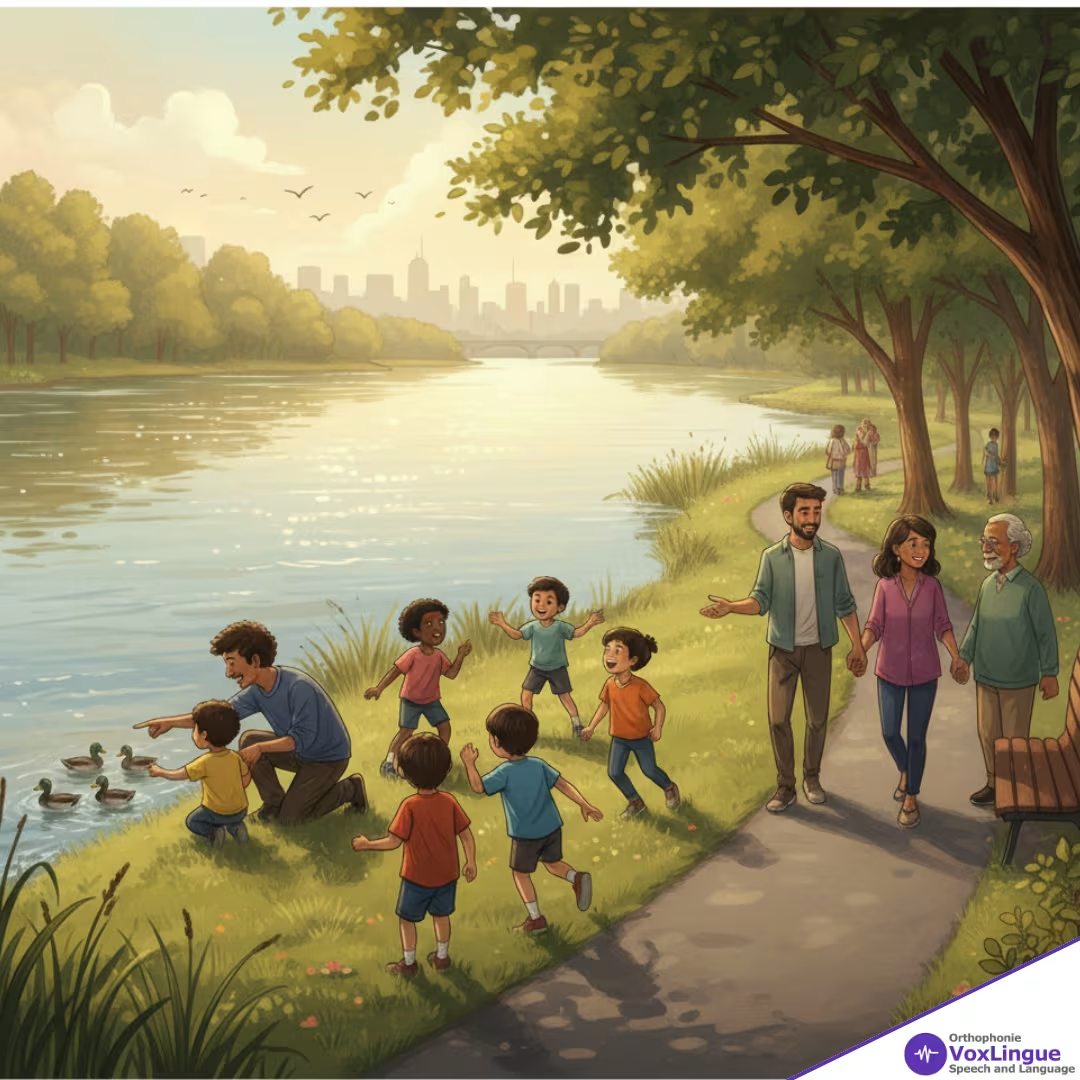
LaSalle’s combination of natural beauty, cultural richness, and educational focus makes it an ideal place for children to learn and grow. The environment itself invites conversation, curiosity, and connection: key ingredients for healthy communication development. To learn more about the borough and its unique spaces, visit the City of LaSalle overview.
In a community like LaSalle, where French and English naturally blend in daily life, communication takes many forms. Children grow up hearing different sounds, expressions, and structures, which enrich their understanding of language but can also make development more complex to navigate. Speech therapy plays an important role in helping families understand what healthy communication looks like in a bilingual or multilingual environment and how to support it at home and in school.
Speech and language development begins long before children say their first words. From early infancy, they are learning to understand sounds, gestures, and facial expressions. These early listening and comprehension skills are known as receptive language. As children grow, they begin to express ideas and emotions through speech, which is called expressive language. Both abilities are essential for success in school and for building relationships with others. When one or both areas develop more slowly, a child may have difficulty following directions, forming sentences, or expressing thoughts clearly.
Articulation, which refers to how speech sounds are produced, is another key component of communication. Some children may substitute or omit sounds while others may struggle to coordinate their mouth movements. In bilingual settings, it is common for children to mix sounds or structures from both languages, and this is often a natural part of learning. However, persistent difficulties in clarity or consistency can sometimes signal a need for professional guidance.
Beyond words and sounds, children also learn pragmatic language, which involves understanding how communication works in context. Pragmatic skills include taking turns in conversation, recognizing social cues, and adjusting language based on the listener or setting. These abilities are crucial for forming friendships and participating effectively in group activities.
For families in LaSalle, where multiple languages are spoken, bilingualism should never be seen as a barrier. Children can successfully learn two languages when both are supported with exposure and positive interaction. Parents can encourage language growth by reading stories in both languages, labeling objects around the home, and using each language in natural settings.
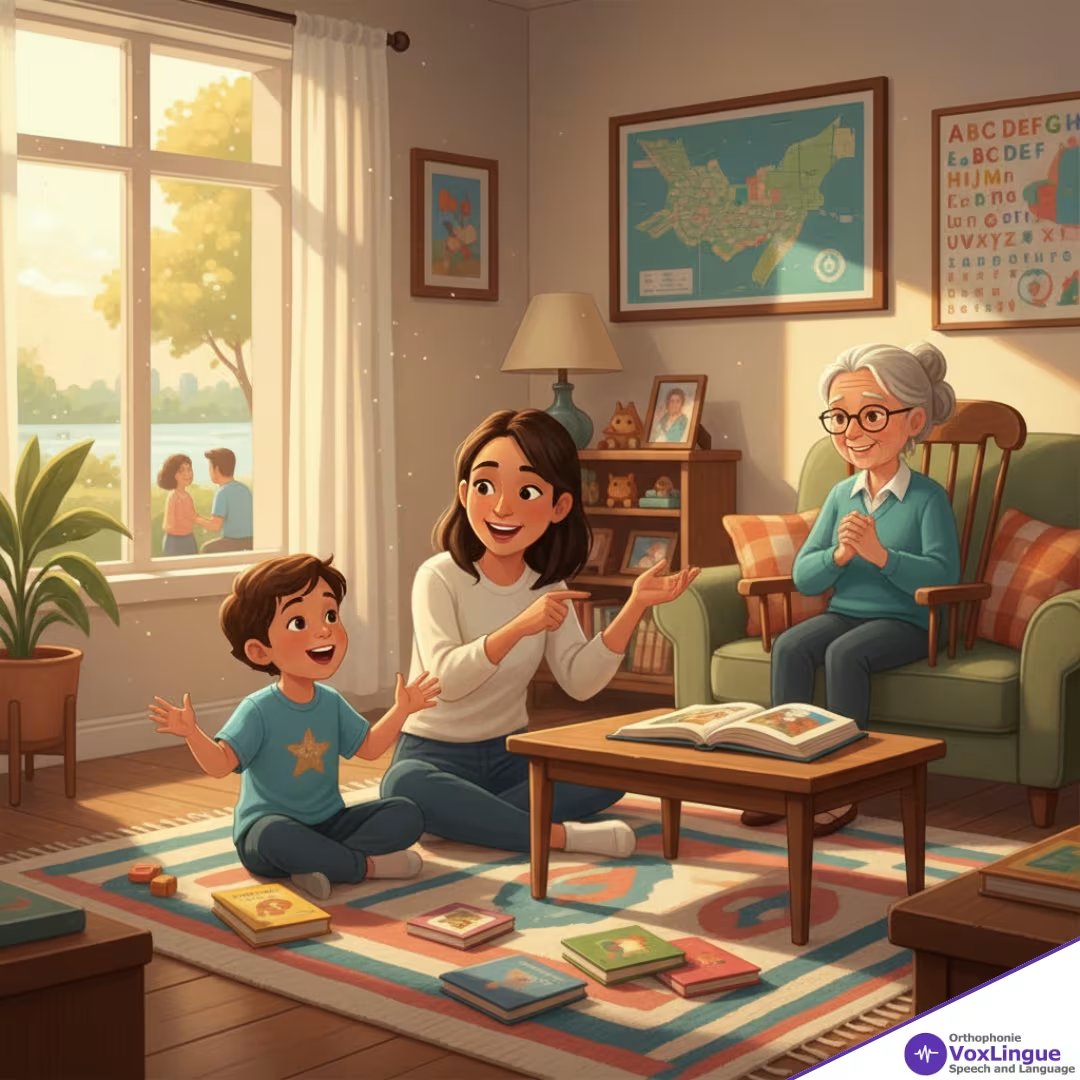
Speech therapy can guide families in recognizing whether language patterns are part of normal bilingual development or if extra support may be beneficial. For children, therapy provides strategies to strengthen comprehension, pronunciation, and social communication skills. For adults, it can improve clarity, confidence, and effectiveness in both personal and professional communication.
To explore more about how therapy supports communication at every stage of life, visit Speech Therapy Services.
LaSalle is home to a rich educational network that values bilingualism, inclusion, and lifelong learning. Local schools and community organizations recognize that language is at the heart of education. It is through communication that children share ideas, build friendships, and connect what they learn in class to their experiences outside of school. The area includes several strong educational institutions, such as LaSalle Community Comprehensive High School, which offers programs that encourage academic growth in both French and English while promoting global awareness and cultural understanding.
In these settings, communication skills go far beyond vocabulary or grammar. Children learn to explain their thoughts, collaborate with classmates, and adapt their language to different situations. Strong listening, speaking, and comprehension abilities are essential for problem-solving, reading, and participation in classroom discussions. When a child struggles in these areas, even small difficulties can influence confidence and learning outcomes.
Speech-language support can make a meaningful difference by helping students strengthen the foundation of their learning. Speech-language pathologists often collaborate with teachers and parents to identify challenges early and develop strategies that can be applied both at school and at home. This teamwork ensures that progress made in therapy is reinforced through daily classroom interactions, reading activities, and structured play.
Beyond the classroom, LaSalle’s libraries, community centers, and after-school programs provide many opportunities for children to practice their communication skills in natural settings. Storytime sessions, drama activities, and group projects encourage children to listen carefully, take turns speaking, and express their thoughts clearly. Every one of these experiences helps children connect language with social and emotional growth.
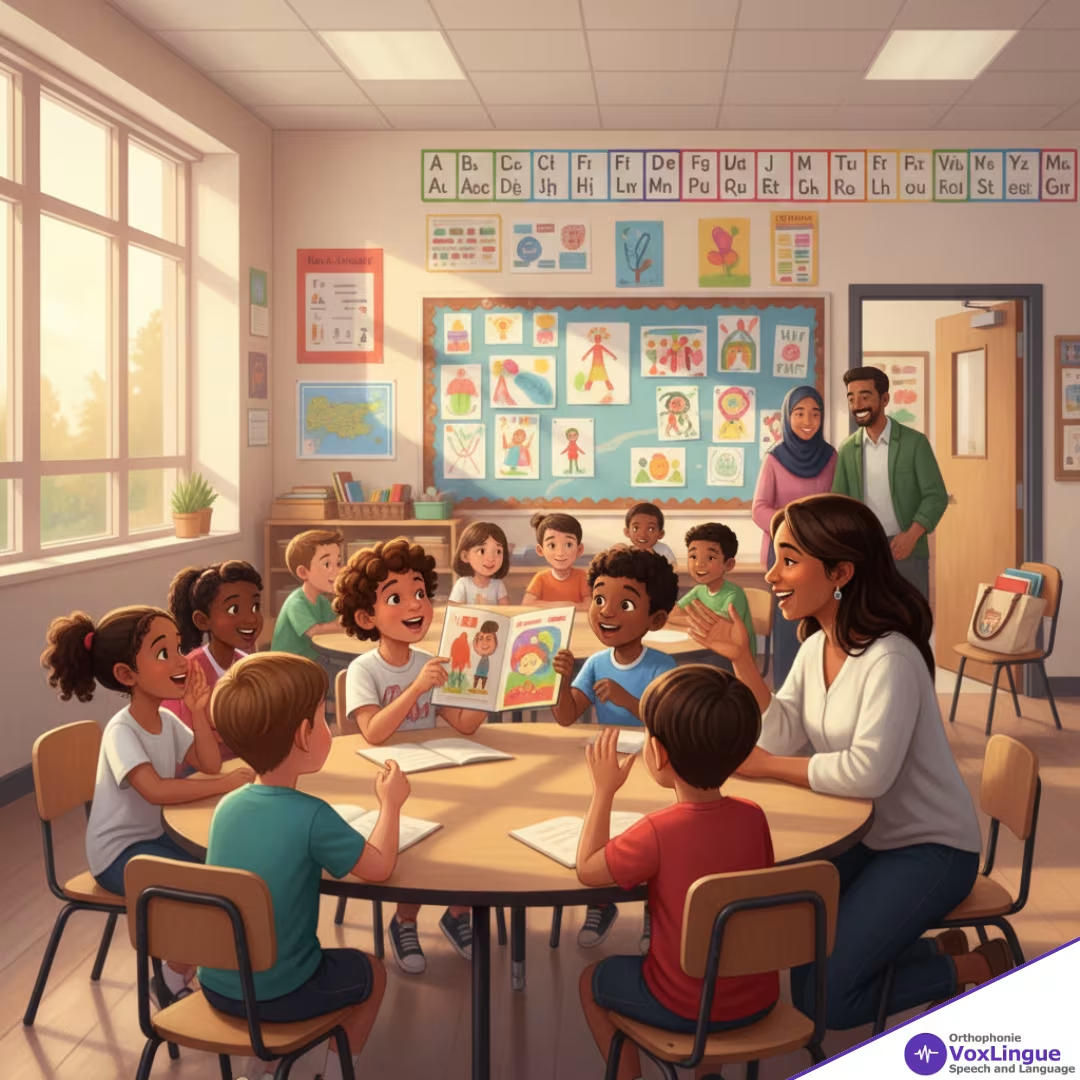
By engaging in conversation and reading in both French and English, children in LaSalle strengthen the cognitive and social skills that support lifelong learning. Language becomes not only a subject to study but a tool for connection, curiosity, and creativity within their community.
Families play the most important role in supporting a child’s communication journey. In LaSalle, parents and caregivers have many opportunities to encourage speech and language development through everyday interactions. Simple moments, such as mealtime conversations, storytelling before bed, or talking together during walks, all contribute to a child’s growing understanding of language. When families use rich vocabulary, describe what they see, and take time to listen to their child’s ideas, they create an environment where language can flourish naturally.
Reading together is one of the most powerful tools for building language skills. Whether parents read in French, English, or both, children benefit from hearing different sounds, sentence structures, and storytelling styles. Regular reading helps strengthen vocabulary, comprehension, and attention. It also provides opportunities for meaningful dialogue about the story, which deepens a child’s ability to express opinions and emotions.
For bilingual families, it is helpful to maintain both languages in daily life. Using each language in natural settings allows children to develop strong foundations in both, rather than feeling the need to choose one over the other. Parents can switch languages based on context, read books in different languages, and encourage their child to communicate freely without fear of making mistakes. This flexibility supports confidence and positive language identity.
LaSalle is fortunate to have several community resources that promote inclusion, diversity, and communication. The LaSalle Multicultural Resource Center offers programs and events that bring families together through cultural exchange and community support. These opportunities help children experience language as a bridge between people, rather than a barrier.
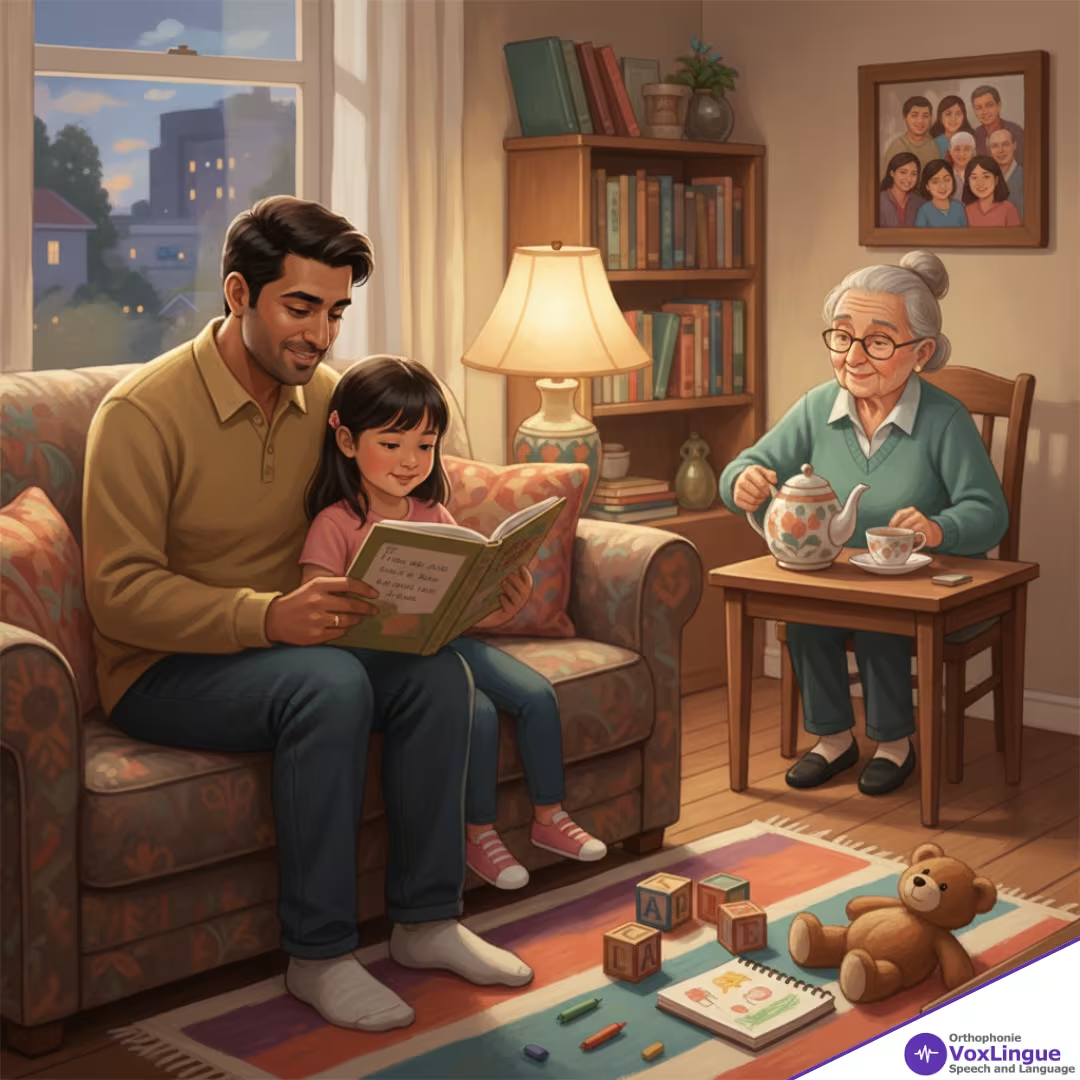
It is also important for parents to stay mindful of early communication milestones. Noticing how a child listens, plays, and expresses themselves can provide valuable clues about their development. If a child has difficulty following directions, forming sentences, or being understood by others, it may be helpful to seek professional advice. Early guidance can make a significant difference in helping children communicate with confidence and ease throughout their lives.
LaSalle offers many opportunities for families to nurture communication skills beyond the home. Everyday outings can become moments of learning, discovery, and connection. Whether through play, reading, or exploration, the community’s rich cultural and natural spaces provide countless opportunities to engage in meaningful conversation.
One wonderful place to start is your local library. Story time sessions and reading corners introduce children to the rhythm of language, new vocabulary, and shared storytelling. Parents can make these experiences even more valuable by discussing the stories afterward, asking questions about characters, or encouraging their child to retell what happened in their own words. These simple activities strengthen comprehension, sequencing, and expressive language.
Outdoor play also offers powerful opportunities for language development. Parks such as Parc des Rapides and the riverside trails along the St. Lawrence River invite children to describe what they see and hear, make predictions about nature, and share observations. Families can transform a walk into a conversation about colors, sounds, and textures, helping children link words with their environment in a concrete way.
LaSalle’s community centers, such as the Centre récréatif et communautaire de LaSalle, often host programs that encourage collaboration and social interaction. Group classes, art workshops, and cultural events give children the chance to communicate with peers in structured and informal settings. Participating in these activities builds both language and social confidence while reinforcing listening and turn-taking skills.
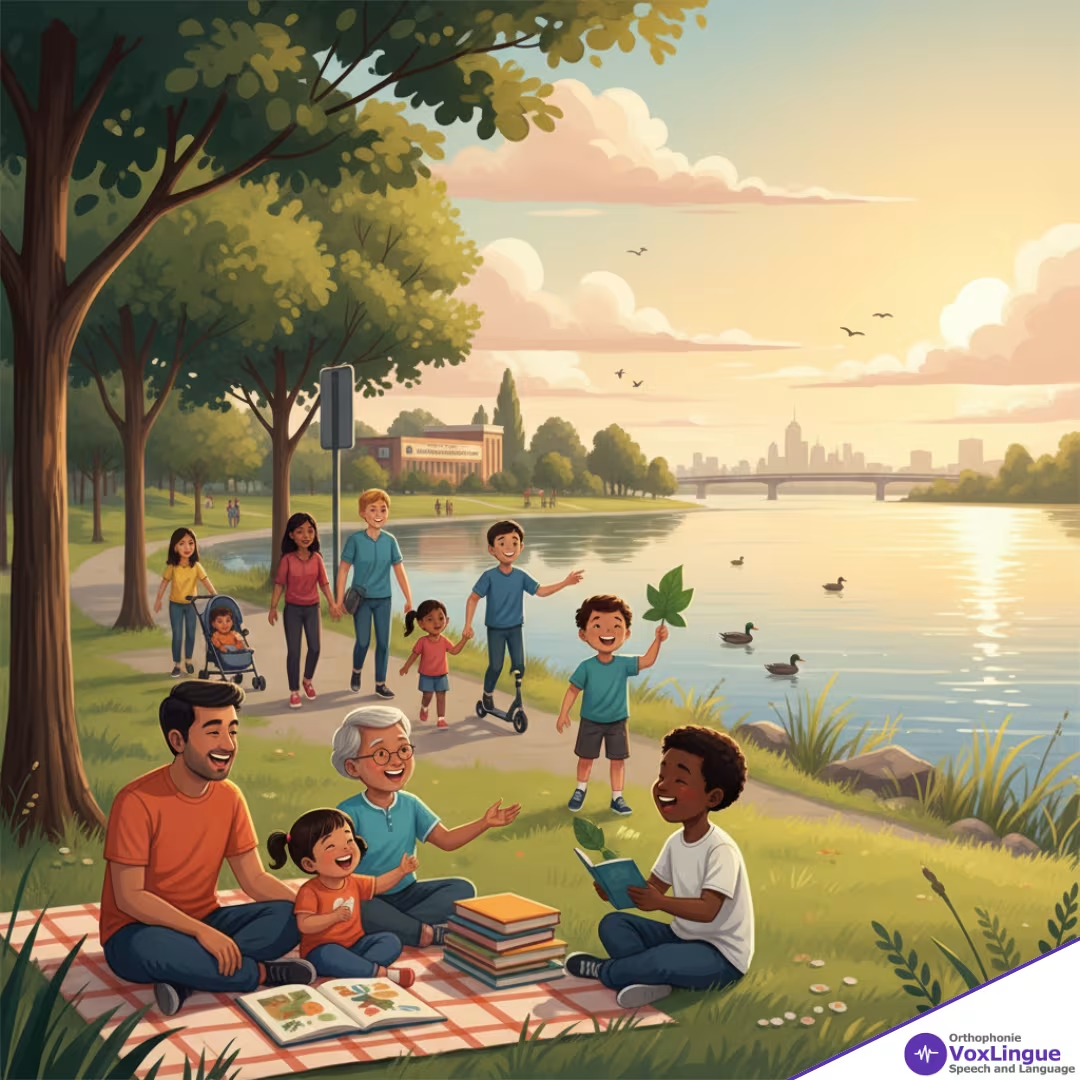
Families can also explore multicultural events that reflect the borough’s diverse character. These gatherings are excellent opportunities for children to hear and use different languages in authentic situations. Exposure to various speech patterns and accents helps children appreciate linguistic diversity and promotes curiosity about how people express themselves. To stay informed about upcoming community programs, visit the LaSalle events calendar.
By engaging in conversation, storytelling, and shared experiences in these everyday settings, families help children develop communication skills that last a lifetime. Language grows best when it is lived, shared, and celebrated in the context of meaningful connection.
Language is one of the most powerful tools that connects people in LaSalle. It shapes how families share traditions, how neighbors form friendships, and how children grow into confident communicators. Every word spoken, every story told, and every question asked strengthens the fabric of this community. Communication is what allows ideas to be exchanged, emotions to be expressed, and understanding to take place across generations and cultures.
Speech and language development is not a single event but an ongoing journey that evolves through every stage of life. For children, it begins with curiosity and play, grows through reading and learning, and becomes a lifelong skill that influences relationships and success. For adults, communication continues to shape professional and personal fulfillment. Families, educators, and clinicians all play essential roles in supporting this growth, ensuring that each individual has the tools to express themselves clearly and confidently.
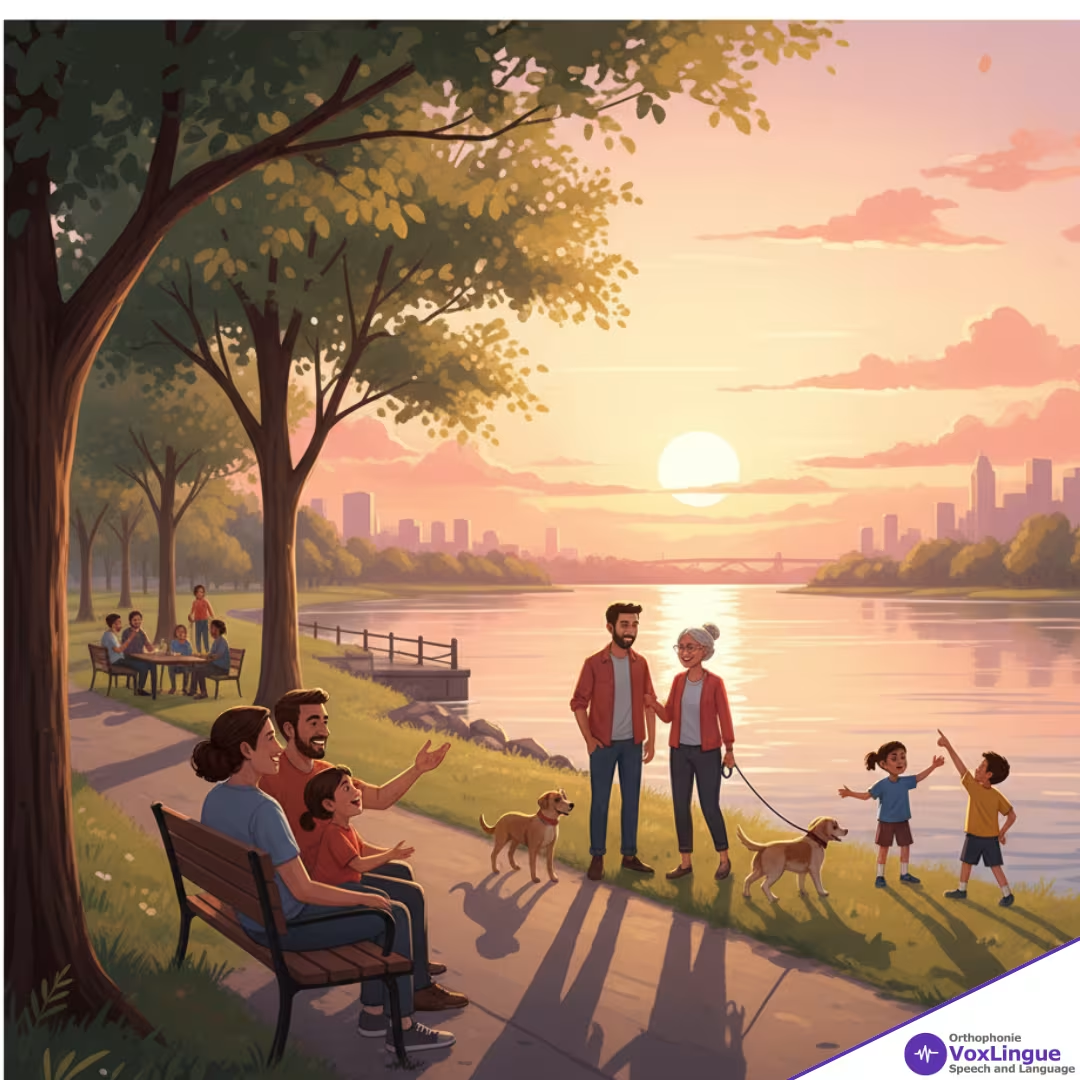
In LaSalle, where languages and cultures blend so naturally, communication is more than a skill: it is part of the community’s identity. Families can help their children thrive by making everyday moments opportunities for conversation, listening, and shared storytelling. With time and encouragement, these small experiences create lasting changes in how children understand and use language.
To explore practical ways to support communication at home and to learn more about speech and language development, we invite you to visit Speech Therapy Services. Through knowledge, collaboration, and community, every family in LaSalle can play a part in helping their children grow as confident and capable communicators.